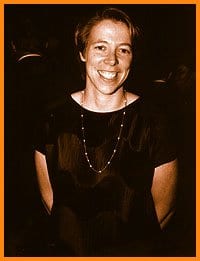There will be no Gay Games in Montreal in 2006.
Negotiations between Montreal organizers and the Federation of Gay Games (FGG) ended Nov 11 after the two sides were unable to agree on questions of control.
Mark Tewksbury, the former Olympic swimmer and co-president of the Montreal Organizing Committee, says Montreal will, however, “absolutely” have a sporting event in 2006. The city had been awarded the 2006 Games earlier last year.
Meanwhile, the FGG -the international body in charge of the games – officially announced Nov 15 that a Gay Games event will be held “ideally in 2006.” Atlanta, Chicago and Los Angeles are likely host cities. Each were contenders along with Montreal during the bidding process.
With opinion in the gay sporting community still divided, it’s hard for anyone to say what will actually happen.
Tewksbury says that his energy is just about gone but claims that Montreal’s partners, including all three levels of governments, are on side.
“We have an event that we thought was what the Gay Game’s dream was. You know, we couldn’t convince the federation, ultimately, that we could do it. They’ve been wounded,” Tewksbury explains.
The last four gay games have all lost money and Tewksbury says that that has really eroded trust between the FGG and the host organization.
According to Tewksbury, it all boils down to language that would have meant that final decisionmaking didn’t lie with the board in Montreal but with the federation. “Or it can be interpreted in a court of law that way,” he says. For Montreal that language was “a dealbreaker.” The FGG has responded, stating it “sought not financial control but, rather, robust budgetary oversight.”
Tewksbury chuckles at the word “robust” but acknowledges that the standoff and its fall-out leave everything up in the air.
“It’s very difficult to guess what’s going to happen,” Tewksbury says apologetically, “This was a very difficult time and I hope that the community doesn’t underestimate how long these negotiations were and how we really tried to do everything we could to work together.”
Acrimonious press releases from both camps – including a Nov 13 point by point Federation rebuttal of a Montreal release – would seem to belie this effort to “work together.”
Nicole LaViolette, co-chair of the board of directors for Team/Équipe Ottawa, said she understands Montreal’s concerns, but is glad to see the FGG finally showing concern about financial matters.
LaViolette has been chair of the Ottawa team for 12 years and has attended four games. Although, she appreciates the event she has real concerns about the devastating effect the Gay Games have on local gay and lesbian communities who host them. The games are well-known for losing money. In Sydney for example, the 2002 Games left a $1 million unpaid tab.
“What I support is that it finally seems that the Federation has taken seriously the problems that have happened with all of the last four gay games in terms of the debts that have been left in the community after the games have left,” she explains.
She reasoned that at least the Federation was trying make the event less of an extravaganza.
“To be honest I’ve never had much confidence in the Federation’s ability to do this,” she confesses. “They’ve not been able to do it for 12 years so I’m not surprised that Montreal had problems with the Federation.”
LaViollete adds that these events are tragic. She points out that the games have had tremendous positive impacts despite the negative ones. But further, from a local perspective many things remain uncertain.
“It’s quite unfortunate for local athletes just because, for the first time, the games were going to be very close and very accessible,” she says. “Several hundred participants from Ottawa were expected.”
“Now, in terms of Team Ottawa, what should we organize for, what should we plan for, what should we tell the community?”
The first Gay Games were held in San Francisco in 1982 with 1,350 participants. Games have also been held in San Francisco (1986), Vancouver (1990), New York (1994), Amsterdam (1998) and Sydney (2002).

 Why you can trust Xtra
Why you can trust Xtra


